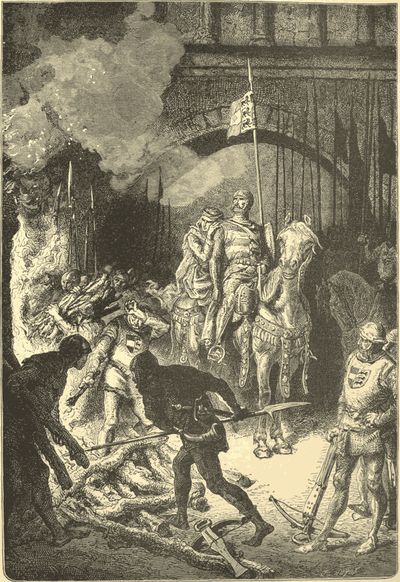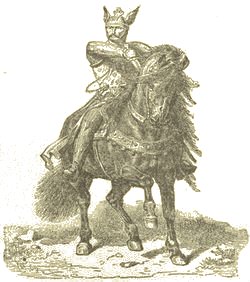 El Cid, born Rodrigo Díaz de Vivar around 1043 in Vivar del Cid, near Burgos, Spain, is one of the most legendary figures in Spanish history and literature. Known for his military prowess and chivalric values, El Cid became a national hero whose life inspired numerous ballads, chronicles, and the famous epic poem "El Cantar de Mio Cid."
El Cid, born Rodrigo Díaz de Vivar around 1043 in Vivar del Cid, near Burgos, Spain, is one of the most legendary figures in Spanish history and literature. Known for his military prowess and chivalric values, El Cid became a national hero whose life inspired numerous ballads, chronicles, and the famous epic poem "El Cantar de Mio Cid."
Rodrigo Díaz began his military career in the service of King Sancho II of Castile. His loyalty and battlefield successes earned him the title of "El Cid," derived from the Arabic al-Sayyid, meaning "The Lord." After Sancho's assassination in 1072, El Cid served King Alfonso VI, but political intrigue and rivalry led to his exile. Despite this, El Cid's skills as a commander were sought after by both Christian and Muslim leaders, reflecting the complex and often fluid allegiances of the Reconquista, the period during which Christian kingdoms sought to reclaim Iberian territories from Muslim rule.
 During his exile, El Cid built his own power base, and his fortunes changed when he captured the key city of Valencia in 1094. Establishing himself as the ruler of Valencia, he governed the city until his death in 1099, defending it successfully against Muslim forces. His reign in Valencia marked a period of relative stability and prosperity, showcasing his abilities not only as a warrior but also as an administrator.
During his exile, El Cid built his own power base, and his fortunes changed when he captured the key city of Valencia in 1094. Establishing himself as the ruler of Valencia, he governed the city until his death in 1099, defending it successfully against Muslim forces. His reign in Valencia marked a period of relative stability and prosperity, showcasing his abilities not only as a warrior but also as an administrator.
The legacy of El Cid was immortalized in literature and folklore, particularly through El Cantar de Mio Cid, which portrays him as an ideal knight: brave, loyal, and honorable. His life and deeds have been romanticized, making him a symbol of the Christian Reconquista and Spanish nationalism.
El Cid's historical and cultural significance endures in Spain, where he is celebrated as a paragon of knightly virtues and a pivotal figure in the country's medieval history. His story continues to captivate audiences, embodying the ideals of heroism and the complex history of medieval Spain. |
 El Cid, born Rodrigo Díaz de Vivar around 1043 in Vivar del Cid, near Burgos, Spain, is one of the most legendary figures in Spanish history and literature. Known for his military prowess and chivalric values, El Cid became a national hero whose life inspired numerous ballads, chronicles, and the famous epic poem "El Cantar de Mio Cid."
El Cid, born Rodrigo Díaz de Vivar around 1043 in Vivar del Cid, near Burgos, Spain, is one of the most legendary figures in Spanish history and literature. Known for his military prowess and chivalric values, El Cid became a national hero whose life inspired numerous ballads, chronicles, and the famous epic poem "El Cantar de Mio Cid."
 During his exile, El Cid built his own power base, and his fortunes changed when he captured the key city of Valencia in 1094. Establishing himself as the ruler of Valencia, he governed the city until his death in 1099, defending it successfully against Muslim forces. His reign in Valencia marked a period of relative stability and prosperity, showcasing his abilities not only as a warrior but also as an administrator.
During his exile, El Cid built his own power base, and his fortunes changed when he captured the key city of Valencia in 1094. Establishing himself as the ruler of Valencia, he governed the city until his death in 1099, defending it successfully against Muslim forces. His reign in Valencia marked a period of relative stability and prosperity, showcasing his abilities not only as a warrior but also as an administrator.








